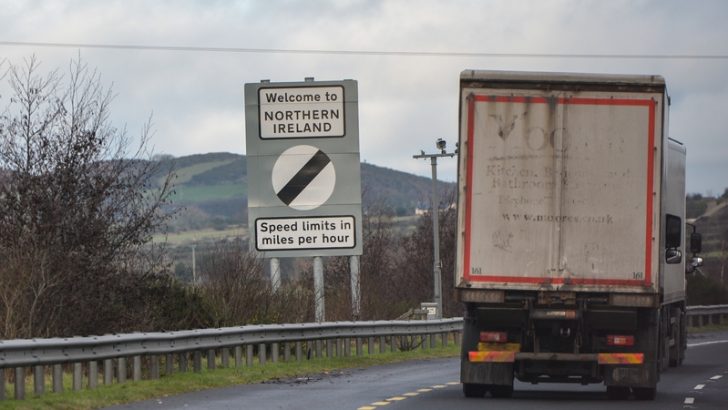The View
2019 is the 50th anniversary of the outbreak of the Troubles, while the centenary of the formation of Northern Ireland and partition fast approaches, against the backdrop of a looming hard or no-deal Brexit, all of which provide a lot to think about.
Few will dispute that nationalists today are in a much better place than they were in 1969, or that the aims of the civil rights campaign have largely been fulfilled, in terms of housing, employment opportunities and political rights. The best proof of that achievement is the rapid rise in the Catholic population to near parity, since direct rule was introduced in 1972. This is not to deny that equality gaps still exist.
The mistake in 1969 was the widespread belief that, because one-party Stormont rule was collapsing, a united Ireland was round the corner, and that a concerted push, whether political, on the streets, or by armed rebellion, would bring it about. A big price was paid for 25 years, before peace could be achieved on any sustainable basis, although its stability remains precarious. There is no means of knowing what the political consequences of taking alternative paths would have been, other than the likelihood of lives saved. Irish nationalism has always been prone to underestimate the resilience and determination of Ulster unionism materially backed by Britain.
With a no-deal Brexit looming, though not inevitable, caution is needed when it is suggested that the conditions for bringing about a united Ireland are within grasp. While a majority in Northern Ireland wished the UK to remain in the EU, and would settle for the withdrawal agreement including the backstop which would retain NI access to the EU without cutting off exports to the rest of the UK, this does not add up to a majority for leaving the UK and rejoining the EU via becoming part of a united Ireland.
The NI Secretary of State would have no basis for believing at present that a majority of those voting would vote to leave the UK and join a united Ireland, notwithstanding anecdotal evidence that some people from a unionist background are seriously discussing that possibility. Agitation for a premature border poll is likely, if anything, to discourage any shift in thinking.
What is certainly encouraging from the point of view of a better future is the gradual enlargement of the middle ground, which is no longer so despised by the bigger parties in both communities. The middle ground does not define itself so much in binary terms, but wants to shift the focus to other ground, such as the EU, the environment, and economic and social issues. One needs to remember that belief that there is now a golden opportunity for a united Ireland is matched on the other side by a belief that Brexit provides an ideal opportunity to strengthen the union.
While it was very simple to fill out a ballot paper and express a preference for leaving the EU or remaining, it is endlessly complicated to disentangle UK-EU links that have built up over more than 40 years and then work out a new relationship, especially in the absence of any consensus over what leaving should involve.
Ireland, with no pretentions to becoming ‘great again’, took the pragmatic path after the initial defeat of the Nice and Lisbon Treaty ratification referendums of sounding opinion, going back to Brussels for assurances and clarifications, which in 2009 included the restoration of one commissioner per member state, then returning to the people. Political leadership was exercised, and, while there was criticism at the time, little is heard of it today, as Ireland would have done itself much damage by marginalising itself in the EU. A smaller country has fewer options and limited safety margins, and that reduces temptations that can result in catastrophic mistakes.
There is much pressure to start discussion of what a united Ireland might look like in advance of any border poll. One has to ask how productive this would be, unless it involved real unionist participation. Perhaps it is better conducted by civil society and research institutions. Politicians are reluctant to spark off divisive debates in a political vacuum.
The two parts of Ireland have developed separately over 100 years. The differences are not purely between unionism and nationalism. Certain aspects of the welfare state, not replicated in the Republic, such as the National Health Service, provide a model that most northern nationalists and republicans prefer. In 1951, the Catholic hierarchy with the medical profession headed off any attempt to evolve in that direction. As the last 10 years of attempted reform have proved, it is very difficult to undo that now.
The better path is to stick to the approach contained in the Good Friday Agreement, to the maximum extent that can be done in a post-Brexit situation, by adhering to the free movement of people and goods across the island, but in a way that must fully protect unimpeded access to the customs union and the single market, including across the EU’s land border with the UK. Rather than there being future signs at the border, ‘You are now entering/leaving the EU’, we should be striving for a situation where they would not be needed.
It is hard to expect northern nationalists to exercise more patience, when for over 100 years they have been deprived of the opportunity to participate in shaping an independent Ireland. The people of the Republic, though it is capable of much improvement, are broadly happy with its independence within the EU. The extent of a substantive willingness, not just a rhetorical one, to accommodate all traditions within reason in a new state has yet to be tested.
It is not possible to unite territory without uniting people, and that remains difficult, where respect, recognition and reconciliation is not sufficiently widespread to allow even critical acceptance of the validity, identity and achievements of the community seen as other on a consistent basis.



